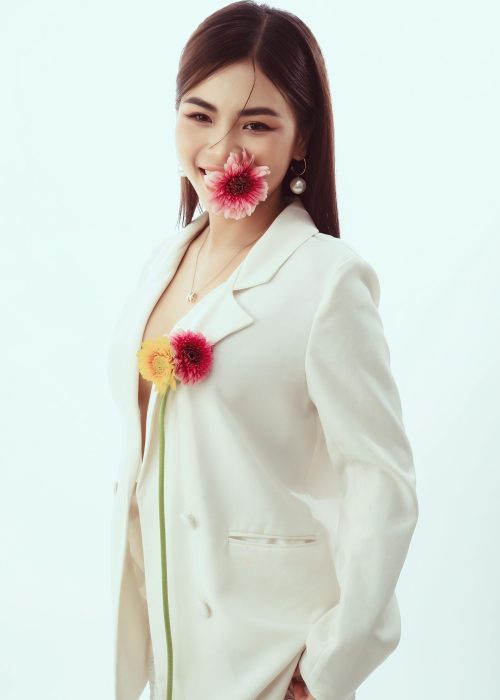Soft Power: The Strength in Gentleness and Intuition
When I first encountered LiYana Silver’s “Feminine Genius,” I was struck by her bold reframing of traits I had been taught to suppress. She revealed how our bodies and emotions aren’t obstacles but sophisticated guidance systems—intelligence centers that offer wisdom if only we would listen. This perspective transformed how I understood my own intuitive hits and emotional responses, not as distractions but as valuable data.
What fascinated me most was Silver’s exploration of how feminine wisdom often operates in non-linear ways. While I had been trained to value direct action and linear thinking, I began to appreciate how my tendency to weave connections between seemingly unrelated elements—what some might dismiss as “overthinking”—was actually a form of intelligence that could perceive patterns others missed.
A central premise of “Feminine Genius” is that women’s bodies and emotions are not obstacles to overcome but rather sophisticated guidance systems. Silver suggests that the body itself is an intelligence center—something many ancient traditions have recognized but modern society often ignores. She encourages women to tune into their physical sensations, emotional responses, and intuitive hits as valuable data rather than distractions.
Perhaps most revolutionary was realizing that embracing paradox and complexity—holding multiple truths simultaneously—represents a sophisticated form of power. In a world that gravitates toward oversimplification, this capacity for nuance offers unique approaches to our most pressing problems. This isn’t just a “feminine” talent but a human one that has been culturally undervalued precisely because of its association with femininity.
In a world that often celebrates force, assertion, and dominance, there exists another kind of strength—one that flows rather than forces, that bends rather than breaks, that nurtures rather than conquers. This is soft power: the profound strength found in gentleness, intuition, and connection.
The Nature of Soft Power
Water exemplifies soft power in its purest form. Given enough time, it shapes mountains, carves canyons, and finds pathways through seemingly impenetrable barriers. Water doesn’t fight obstacles; it embraces them, flows around them, or slowly transforms them. There is wisdom in this approach—a wisdom that has traditionally been associated with feminine energy but represents a universal human potential.
Hard power pushes forward, demands, and often creates resistance. Soft power, by contrast, draws others in, creates space for connection, and dissolves resistance. It’s the difference between commanding respect and inspiring it, between forcing compliance and fostering willing cooperation.
This gentler approach doesn’t indicate weakness—quite the opposite. It requires tremendous strength to remain open in a world that encourages armoring, to listen deeply when it’s easier to speak over others, to trust intuition when logic seems safer, and to remain sensitive when numbness offers protection.
Soft Power in Action
Consider the mother who calms a tantrum not with threats but with empathetic presence. The manager who leads not through fear but through vision and inspiration. The negotiator who succeeds not by dominating but by discovering common ground. The healer who understands that sometimes holding space is more powerful than rushing to fix.
In relationships, soft power manifests as the ability to truly hear another person—not just their words but the emotions and needs beneath them. It appears in the courage to be vulnerable rather than defensive, to respond with compassion rather than judgment. These approaches don’t surrender power; they transform it into connection.
In leadership, soft power emerges as emotional intelligence, as the ability to read a room, to understand what others need to thrive. Leaders who embody this strength create environments where innovation flourishes because people feel safe to express themselves. They inspire loyalty not because others fear them but because others feel valued by them.
In community building, soft power shows up as patience and persistence. It’s the quiet voice that continues speaking truth, even when not immediately heard. It’s the gentle persistence that wears away resistance not through force but through consistent presence and unwavering compassion.
The Wisdom of Receptivity
Video By Wendy Laplume
Our culture often equates action with power and receptivity with passivity. Yet there is tremendous power in receptivity—in creating space, in deep listening, in being fully present. The earth doesn’t chase the seed; it receives it and provides the conditions for growth. Similarly, our receptive qualities allow us to be vessels for wisdom that comes through intuition, through dreams, through moments of unexpected clarity.
Intuition itself represents a kind of knowing that doesn’t arrive through linear analysis but through a deeper attunement to patterns, connections, and subtle energies. This form of intelligence has been consistently undervalued in favor of logic and reason, yet it often leads us to insights that rational thought alone cannot access.
The practice of receptivity requires boundaries—not walls that isolate but permeable membranes that allow selective exchange. It’s not about absorbing everything indiscriminately but about creating space for what nourishes while gently releasing what doesn’t serve.
The Strength in Softness
Softness is not the absence of strength but a different expression of it. Consider the flexibility of a willow tree compared to the rigidity of an oak. In strong winds, the oak may stand firm until it suddenly breaks, while the willow bends and survives. Adaptability, not rigidity, ensures long-term resilience.
This principle applies equally to our emotional lives. The strength to feel deeply, to allow ourselves to be moved by beauty or sorrow, requires more courage than emotional detachment. The person who can remain open-hearted in a cynical world demonstrates greater power than one who armors against vulnerability.
In conflict, softness manifests as the ability to hold opposing viewpoints without immediate judgment, to remain curious rather than defensive, to seek understanding before resolution. It’s the strength to stay present when fight-or-flight instincts urge escape.
Balancing Inner Energies
We all contain both traditionally “masculine” and “feminine” energies, regardless of gender identity. Wholeness comes not from rejecting one in favor of the other but from honoring both and finding their appropriate expression in different contexts.
There are times when directness serves better than subtlety, when boundaries must be firmly stated rather than gently suggested, when action must replace contemplation. The wisdom lies in discernment—knowing which approach a situation calls for and having the flexibility to shift between them.
This balance can be seen in effective leadership, as demonstrated by a marketing team leader facing a tight deadline for a major client presentation. Rather than exclusively using hierarchical authority to demand longer hours (a traditionally “masculine” approach), she created space for team members to express their concerns and used deep listening to understand each person’s perspective (drawing on “feminine” strengths). However, when the situation required clarity, she set firm parameters about non-negotiable aspects of the project.
Her leadership integrated intuitive awareness of team dynamics with decisive action. She paired people according to complementary strengths and facilitated conversations between team members with conflicting approaches instead of immediately imposing solutions. When technical decisions needed clear direction, she provided it without hesitation.
This balanced approach yielded remarkable results: the team not only met their deadline but produced more innovative work than expected. Team cohesion strengthened rather than fractured under pressure, and several members voluntarily contributed extra effort—not from obligation but from genuine engagement.
This balance reflects the natural world, where cycles of activity and rest, growth and consolidation, expansion and contraction create the rhythm of life. Power exists in both the surge and the stillness, in both the ocean wave and the quiet depth.
Cultivating Soft Power
How might we develop these qualities of soft power in ourselves?
Practice deep listening—not just to others but to your own intuition, to the subtle messages of your body, to the quiet knowing that often gets drowned out by mental noise.
Embrace your sensitivity as a gift rather than a burden. Sensitive people often notice what others miss, creating opportunities for deeper connection and more attuned responses.
Cultivate presence. Soft power operates in the now—not rushing toward the future or dwelling in the past but fully inhabiting this moment with all its complexity.
Trust the power of small, consistent actions. Just as water shapes stone through persistent gentle contact, meaningful change often comes not through dramatic gestures but through daily practices of kindness, attention, and care.
Redefining Strength
Perhaps it’s time to expand our definition of strength beyond dominance, beyond force, beyond the ability to withstand pressure without showing impact. True strength might include the courage to remain soft in a hard world, to stay open when it would be easier to close, to respond with compassion when provoked to anger.
The world doesn’t need more hardness. It needs the strength of those who can hold complexity without oversimplifying, who can stay present with discomfort without rushing to false solutions, who can meet difficulty with both boundary and grace.
This isn’t weakness. This is power in its most transformative form—the kind that doesn’t deplete but regenerates, that doesn’t diminish others but elevates them, that doesn’t conquer the world but helps to heal it.
In embracing the power of gentleness, intuition, and connection, we don’t surrender our strength. We discover its deepest expression.
Embracing the Wisdom of Feminine Genius
As we consider the transformative potential of soft power in our lives and communities, the insights from LiYana Silver’s “Feminine Genius” offer valuable guidance. Her work reminds us that what we’ve explored isn’t merely theoretical—countless individuals are already reclaiming these traditionally feminine qualities as sources of profound strength and wisdom.
Silver’s framing of our bodies and emotions as sophisticated guidance systems invites us to trust our intuitive knowing, even when it defies logical explanation. Her exploration of non-linear thinking and the power of holding paradox provides a framework for understanding how these approaches represent intelligence rather than weakness.
The journey into soft power isn’t about rejecting strength but redefining it. It’s about recognizing that true power flows not from domination but from connection, not from rigidity but from resilience, not from force but from presence. As we cultivate these qualities within ourselves—regardless of gender—we access more complete expressions of our humanity and discover new approaches to our most pressing challenges. In a world that often feels increasingly harsh and divided, perhaps this gentle strength is exactly what we need.
Enjoying this content? You’ll love this one too:

Visagism: The Art and Science of Enhancing Your Unique Beauty
Frequently Asked Questions About Soft Power: The Strength in Gentleness and Intuition
Video By Pavel Danilyuk
1.What is “soft power” as discussed in this article?
Soft power refers to strength expressed through qualities traditionally associated with femininity, such as gentleness, empathy, intuition, and connection. Unlike “hard power” which operates through force or domination, soft power works through influence, attraction, and relationship-building. It’s like water shaping stone—patient, persistent, and ultimately transformative.
2. Is this concept only relevant to women?
Not at all. While these qualities have been traditionally associated with femininity in many cultures, the article emphasizes that soft power represents universal human potential. Regardless of gender identity, all people can benefit from developing and honoring these capacities alongside more traditionally “masculine” strengths.
3.How is being “soft” actually a form of strength?
Softness requires tremendous courage—it takes strength to remain open in a world that encourages armoring, to listen deeply when it’s easier to speak over others, to trust intuition when logic seems safer, and to remain sensitive when numbness offers protection. Like the willow tree that survives storms by bending rather than breaking, softness often demonstrates greater resilience than rigidity.
4. How can I apply soft power in my professional life?
In professional settings, soft power manifests through emotional intelligence, deep listening, intuitive decision-making, and collaborative leadership. Leaders who embody these qualities often create environments where innovation flourishes because people feel safe to express themselves. They inspire loyalty not through intimidation but through genuine connection and valuing others’ contributions.
5.How does soft power work in conflict situations?
In conflict, soft power appears as the ability to hold opposing viewpoints without immediate judgment, to remain curious rather than defensive, to seek understanding before resolution. It’s the strength to stay present when fight-or-flight instincts urge escape. This approach often leads to more sustainable solutions because it addresses underlying needs rather than merely imposing compromises.
6.Isn’t intuition just a fancy word for guessing?
No. Intuition represents a sophisticated form of intelligence that processes complex patterns and subtle cues too numerous for our conscious mind to track. It synthesizes our lived experience, embodied knowledge, and perceptive abilities to arrive at insights that linear analysis might miss. While intuition shouldn’t replace critical thinking, it complements it in powerful ways.
7.How can I cultivate more soft power in myself?
Practice deep listening—not just to others but to your own body and intuition. Embrace sensitivity as a gift rather than a burden. Cultivate presence by fully inhabiting each moment. Trust the power of small, consistent actions over dramatic gestures. Recognize and honor both traditionally “masculine” and “feminine” energies within yourself, developing the wisdom to know which approach different situations require.
8. Does embracing soft power mean rejecting more direct forms of power?
Not at all. The article advocates for balance and integration. There are times when directness serves better than subtlety, when boundaries must be firmly stated, when action must replace contemplation. Wisdom lies in discernment—knowing which approach a situation calls for and having the flexibility to shift between them.
9.Which books explore these concepts further?
LiYana Silver’s “Feminine Genius” examines how feminine wisdom, embodiment, and intuition represent sophisticated forms of power and intelligence. Marianne Williamson’s “The Power of the Feminine” explores how traditionally feminine qualities can transform relationships and society. Other recommended readings include Clarissa Pinkola Estés’ “Women Who Run With the Wolves” and Joseph Nye’s original work on soft power in international relations.
10. Is this approach effective in a world that often rewards aggression and dominance?
While our culture often celebrates force and dominance, many successful leaders and change-makers throughout history have employed soft power effectively. Research increasingly shows that organizations with collaborative, empathetic leadership often outperform those with strictly hierarchical, dominant approaches. As we face complex global challenges, the capacity to build consensus, inspire cooperation, and create sustainable solutions—all hallmarks of soft power—becomes increasingly valuable.


Stay Inspired – Join Our Inner Circle!
Subscribe to our newsletter for exclusive tips, soulful stories, product finds, and early access to new blog posts + freebies!









